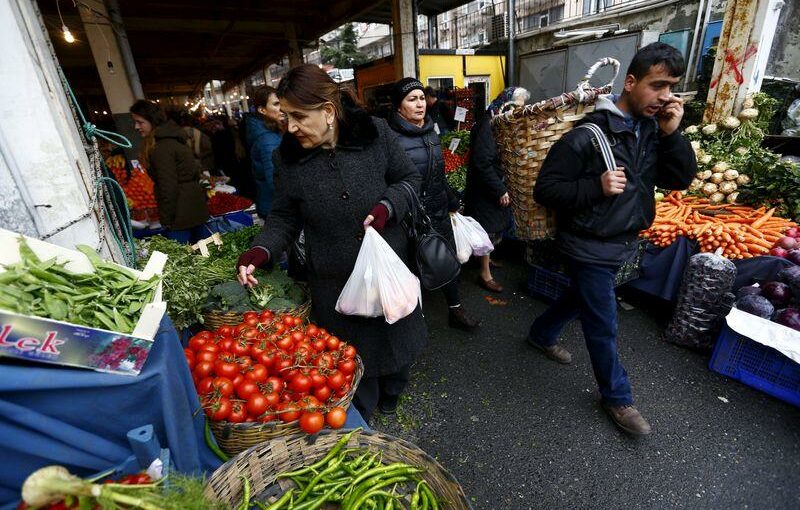ISTANBUL (Reuters) – Turkey’s central bank chief reaffirmed a commitment to tight policy on Thursday even if more “front-loaded” steps are needed, and he stood by an aggressive forecast that inflation of near 15% would drop below 10% by year end.
Governor Naci Agbal said it was “too early” to ease policy after the bank hiked its key interest rate to 17% from 10.25% since November, when he took the reins, giving Turkey among the highest borrowing costs in emerging markets.
The lira firmed in response and analysts noted Agbal has maintained a hawkish stance since President Tayyip Erdogan appointed him, setting the stage for rates to remain higher for longer than previously expected in 2021.
Turkish inflation has been double-digits for most of the last three years and edged up to 14.6% in December. Food prices have soared 20%, hitting Turks just as new coronavirus-related curbs and the higher borrowing costs also weighed.
In an online briefing of the bank’s quarterly inflation report, Agbal said: “We are aware there are upside risks to this forecast (but) the strong impact of the tight policy stance will achieve a fall in inflation to 9.4% at year end.”
He promised “decisive” and cautious policymaking until an official 5% target is reached at the end of 2023.
“The (bank) will implement a full-fledged inflation targeting strategy” this year until results are clear, the report said, adding “additional front-loaded tightening will be implemented” if necessary.
Markets’ expectations, on the other hand, are for between 11% and 12% inflation by year end in part because Erdogan has diminished the central bank’s credibility in recent years.
The president regularly urges low rates and fired the last two bank governors over policy disputes. Last week Erdogan said he was “absolutely” against high rates.
The “biggest question still though is will Erdogan stick with (Agbal) or look to appoint someone who is willing to deliver short term growth – at the expense of inflation,” said Tim Ash of BlueBay Asset Management.
Yet since Agbal was appointed, foreign fund inflows have picked up, due in part to the higher yields and also due to a wave of investment in emerging markets.
The Turkish lira firmed after the central bank maintained its forecast of 9.4% inflation by end-2021, after having raised it in the last two quarterly reports.
By the end of 2022, annual CPI is expected to be 7%, the upper bound of the bank’s target range.
Agbal added economic growth showed a strong trend at the end of 2020 but has slowed according to recent indicators, partly due to monetary tightening that sharply slowed credit growth.
A burst of state bank-driven lending led to a strong rebound in the second half of 2020 after the economy contracted by nearly 10% in the second quarter. Agbal said rises in food prices were an important risk to overall inflation in 2021.
The International Monetery Fund said this week “any premature easing should be avoided … to better anchor inflation expectations, sustain capital inflows and address dollarization,” in which Turks have bought record hard currencies.
Source: Read Full Article
